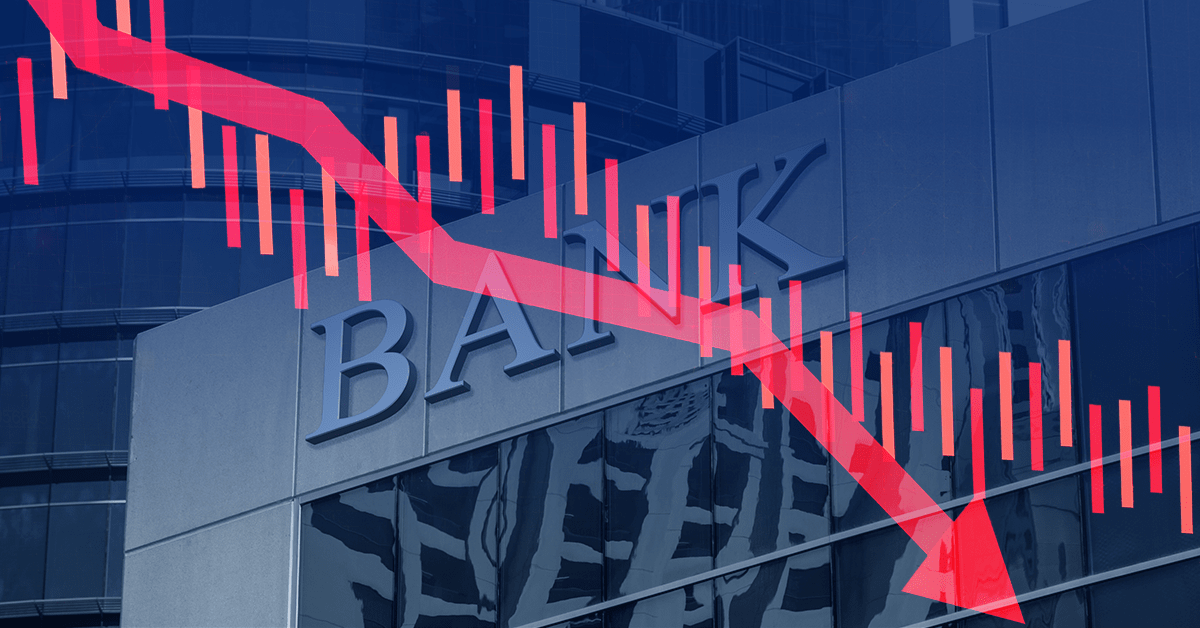
Some banks are going down, others are being rescued by competition and the interest in gold is dynamically growing... What will the situation be like next?
24. 03. 2023A huge question mark currently hovers over the world economy. The problems of Credit Suisse, the fall of Silicon Valley Bank (SVB), and other banks in the US have awakened memories of 2007, when the last major global economic crisis began. Normally, a bank's collapse affects mainly its owners, i.e. its shareholders, not its creditors. In the case of Credit Suisse, however, it is bondholders that will be most affected. This approach reinforces investors' uncertainty, which is also why their attention is being diverted away.

The fall of SVB illustrates the current state of the banking system. The banks that have collapsed in the last few days held US loans as collateral, but their value has decreased due to the high interest rates that the US Federal Reserve has been implementing as part of its anti‑inflationary measures. From a level of 0.00% to 0.25%, interest rates reached 4.75% to 5.00%. The market value of assets held by US banks is now approximately two trillion US dollars lower than their book value indicates. Around 10% of US banks have even higher unreported losses than SVB. Customers with deposits over USD 250,000 are particularly sensitive to this situation, as deposits above this amount are not insured. If only half of the uninsured depositors choose to withdraw their deposits from the banks at risk, almost 190 banks will face difficulties. This situation is also a threat to insured customers and their USD 300 billion in deposits.
SVB, which specialized in the startup sector, was also hit by the increased interest rates. The bank placed its clients' money in government bonds. When companies wanted to withdraw their money, the bank had to sell the bonds it held, which had lost some of their value in the meantime. And the lower price resulted in a substantial loss.
Credit Suisse is many times larger than Silicon Valley Bank (SVB), and its forced rescue was not surprising given its previous troubles. However, its execution was a surprise. As part of the rescue plan, the Swiss authorities reduced the value of its bonds to zero. But shareholders were allowed to keep USD 3 billion, which of course caused a fuss. The bondholders, unlike the shareholders, lost all their investments.
Currently, the markets are being calmed by promises and guarantees from all sides. On the other hand, we can see the fundamental problems that banks have. They hold large amounts of long‑term government bonds, which are losing value, so banks are unable to generate money for their clients. The rise in interest rates has brought an end to the period of "cheap" money and, as Thorsten Beck said, "With the receding tide we see who has been swimming naked".
Is another crisis on the horizon?
In connection with the events described above, the years 2007 and 2008 are mentioned, when the fall of Lehman Brothers bank triggered another crisis that lasted for several years. However, according to Thorsten Beck, Director of the Florence School of Banking and Finance, we should not expect a global collapse of the banking system. As always, the opinions of experts are not clear‑cut and the future may hold unpleasant scenarios.
According to Robert Kiyosaki, author of the best‑selling book Rich Dad, Poor Dad, the current banking crisis in the United States and Europe may lead to the development of global inflation. He believes that the United States will address the problem by printing more money. This can be suspected to be behind the guarantee of all deposits in the bankrupt SVB, by the way. Although both Thorsten Beck and Joe Biden assure that bank bankrupts will not be passed on to the taxpayers' wallets, Kiyosaki believes that the inflation problem signals an impending global crash. He sees investment in precious metals or cryptocurrencies as a way out, which could save investors from a "fake money" crash.
This is also why gold and silver prices rose at the beginning of the week. According to Bart Melek, head of commodity markets strategy at TD Securities, the precious metal is currently doing its job. According to Alexander Zumpfe, a precious metals trader, in the short term, the further development of the gold price depends largely on how effective further measures by the FED are. "If the Silicon Valley Bank (SVB) failure is considered an isolated incident, gold may lose some of its recent gains. However, if the crisis leads to a permanent reversal in FED policy, gold demand may continue," Zumpfe said.
It is difficult to predict how the situation will continue to develop and how effective the actions of individual countries will be in dealing with the ongoing bank crisis. The issue is very much alive and changing with each passing day. "Overall, the banking system is much stronger than it was in 2008, and the authorities are much better prepared to deal with problems in a timely manner," Beck said. So the current crisis is likely to be weathered by governments together with national regulators. After all, they have plenty of tools at their disposal, from promises and guarantees to modern communication tools.
But we have not solved the causes of the current crisis. The loss of asset value caused by the rise of interest rates has not disappeared; we are just sweeping it under the rug. Remediating the losses incurred by 'creating' more money will feed inflation and the vicious circle of cause and effect will continue to spin. Thus, gold remains an important tool for portfolio diversification or for keeping your savings safe and secure. In these volatile times, the benefits of buying gold gradually and the importance of setting a good strategy become apparent.




